Once monthly, the New York City Writing Project celebrates the teacher-as-writer by publishing works of poetry and prose written by its teachers. If you are interested in submitting your work to NYCWP Voices, please read the submissions guidelines and submit your work by email to voices@nycwritingproject.org.
YOU, THE SPEECH TEACHER
-Kristen McMahon
THE FIRST TIME you sit down across from a student, you panic. You think, “Why isn’t anyone watching to make sure I do this right?” You remember your supervisors. The friendly one from the university who smiled as you escorted your very first patient into that room with the two-way mirror. The intense one from the hospital who made you cry. The lazy one who read romance novels while a student punched you in the face. You fantasize that one of them will magically appear and say, “Here’s an ice breaker that your students will love!” or “Read them this book.”
Three unblinking sets of eyes stare at you for the interminable 30 minutes of that first session. You survive it. And the next one. And the next. You see kindergarteners at 9:00 and fifth graders at 9:30. You eventually meet all 43 blank slates – a few dozen tabula rasae to project your assumptions and fears and excitement about your first year working as a speech-language pathologist. (Or as they call you in your school, no matter how many times you cringe, a “speech teacher.”) You wonder what kind of impression you will make. You remember your grandmother ironing sheets, wrinkles disappearing before your eyes. You think of crinkled tinfoil, which never regains its smooth, flat texture.
After a few weeks, you begin to see them as individuals. The outlines of their bodies become more focused, the colors of their hair and eyes and clothes more clear. They are no longer faces in a crowd. Somehow they stand out in the hallways, the lunchroom, and the playground. Somehow they have become yours.
At some point you meet their parents. Or their grandparents, foster parents, aunts, uncles, or siblings. You see shadows of features and mannerisms. You get a quick glimpse of the adult your student may become.
Then one seemingly ordinary day, everything is different. The boy who fiercely hugged you in front of all his friends calls you ugly. Crazy. Fat. Stupid. He hurts you, but you try not to show it as you escort him to the dean’s office. The girl who finally learned to say “r” tells you she was “weading a new stowy” in class, and you have to start over. You choose a passage that is too difficult for the fourth grader who walks out in the middle of a session. The mountains you were climbing begin to crumble. You feel a landslide approaching, helpless to stop it. You consider whether you can make it to winter break without quitting.
The holidays are a blur. You have a million things on your to do list to get organized for the next part of the year. But, instead of being productive, you embark on a romance with Netflix while your mind slowly empties and your muscles uncoil for the first time in months.
After the New Year, you hit your stride. Lesson plans stream from you almost unconsciously. Ideas burst forth like hot springs. You are invigorated. The days and weeks unspool through February. March. You think of predictable movie montages showing the pages of a calendar falling away to indicate the passage of time. In April, your older kids become immersed in test prep. They begin to look like wizened, tired old crones. The younger students become refreshed from visiting the zoo and going on picnics in Prospect Park. They return, bursting at the seams with stories and adventure while the older students choke on their anxiety, vomiting in the hall from fear. Your heart quietly breaks.
Suddenly, it is May. The weather is warmer. The countdown begins. 35 days. 29. 24. 20 (not counting PD). Your fifth graders rehearse for graduation. You think, “When did they get so tall?”
Sweat pours from your pores as you move through June. You ask your students to help you pack your books and games, and move them to your new room. They joyfully oblige. They ask if you will be there in September. You realize what you mean to them. They want to help you. They are afraid you will abandon them. You feel a feeling you can’t describe in a place you didn’t know you had.
You cry at graduation. You go around to each class on the last day of school. The boy who called you stupid hugs you goodbye, Along with six of his classmates, they huddle around you, like your favorite sports team celebrating a championship victory. Your work is done. For now.
The next day, you sleep until noon. Images from your first year swirl through your consciousness, solidifying in your memory.
You wake up a second year teacher.
 Kristen McMahon is a Teacher of Speech Improvement at PS 365 The Jackie Robinson School in Brooklyn. After 12 years working in the public relations and government affairs industries, Kristen decided to change careers in order to work in education. She received an MA in Speech and Language Pathology in May 2014 and began working for the NYCDOE the following September. Outside of an honorable mention in a citywide short story competition her sophomore year of high school, this is her first publication.
Kristen McMahon is a Teacher of Speech Improvement at PS 365 The Jackie Robinson School in Brooklyn. After 12 years working in the public relations and government affairs industries, Kristen decided to change careers in order to work in education. She received an MA in Speech and Language Pathology in May 2014 and began working for the NYCDOE the following September. Outside of an honorable mention in a citywide short story competition her sophomore year of high school, this is her first publication.

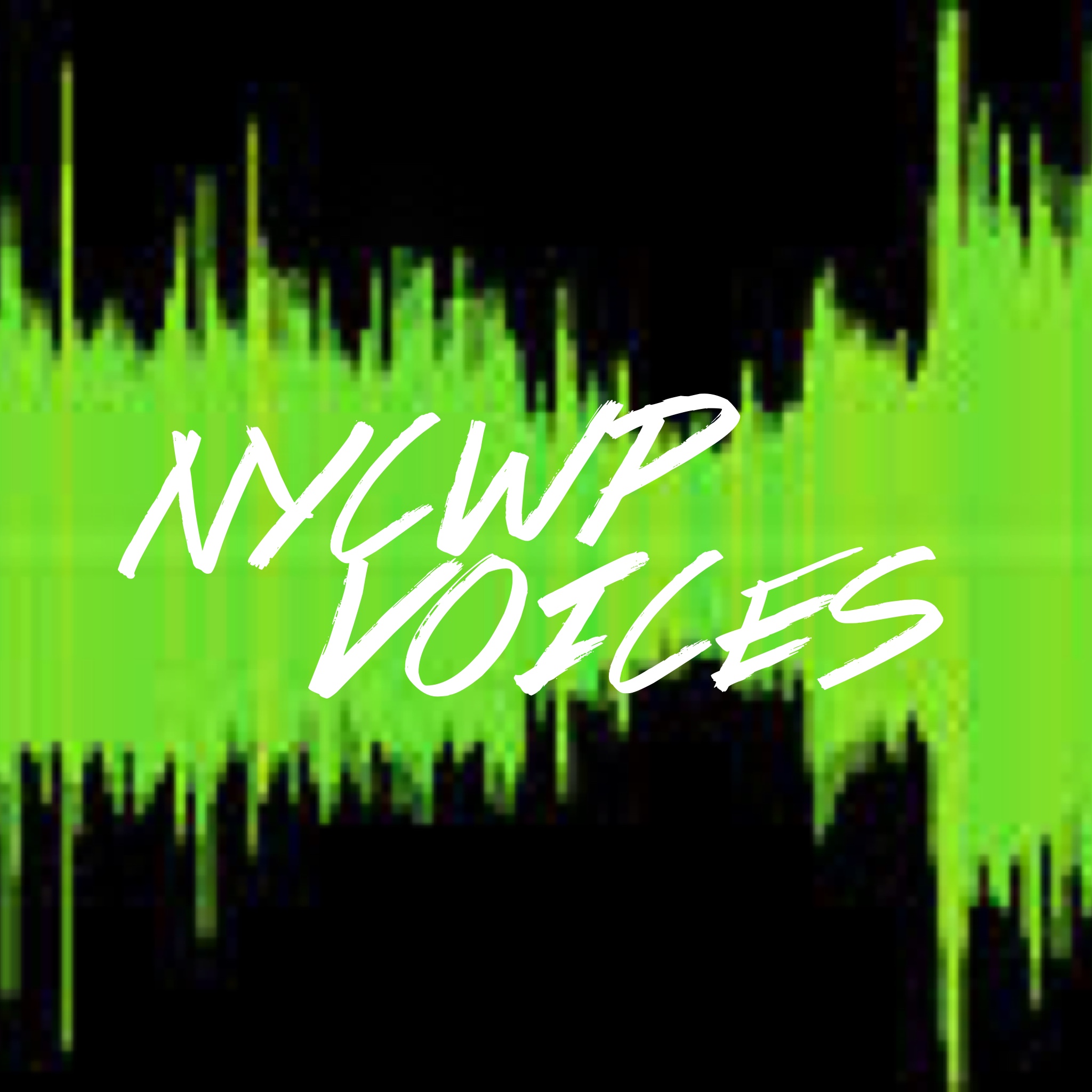
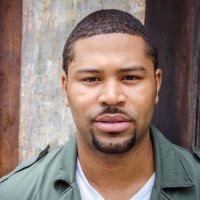 Marcus Brandon McArthur
Marcus Brandon McArthur 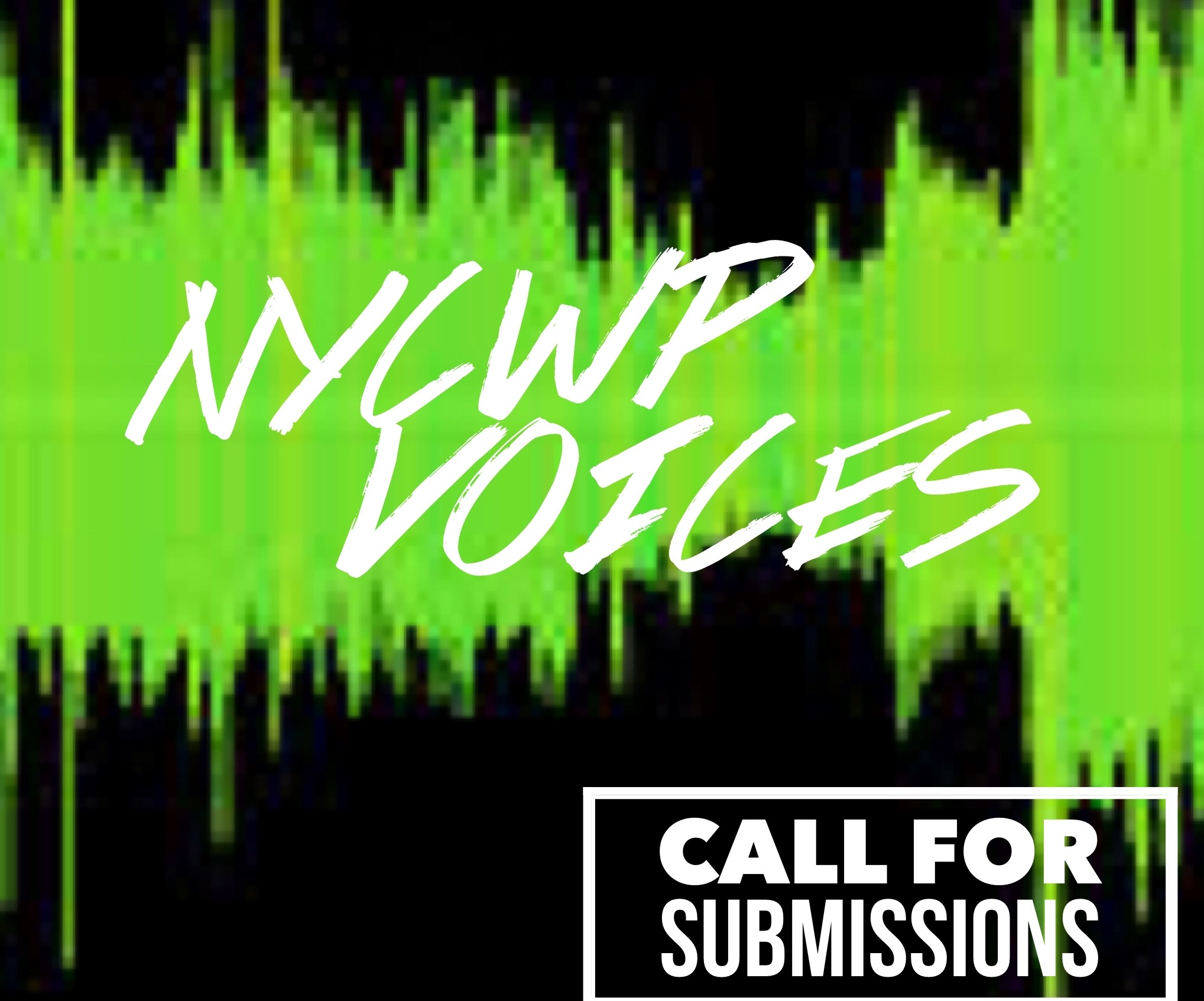
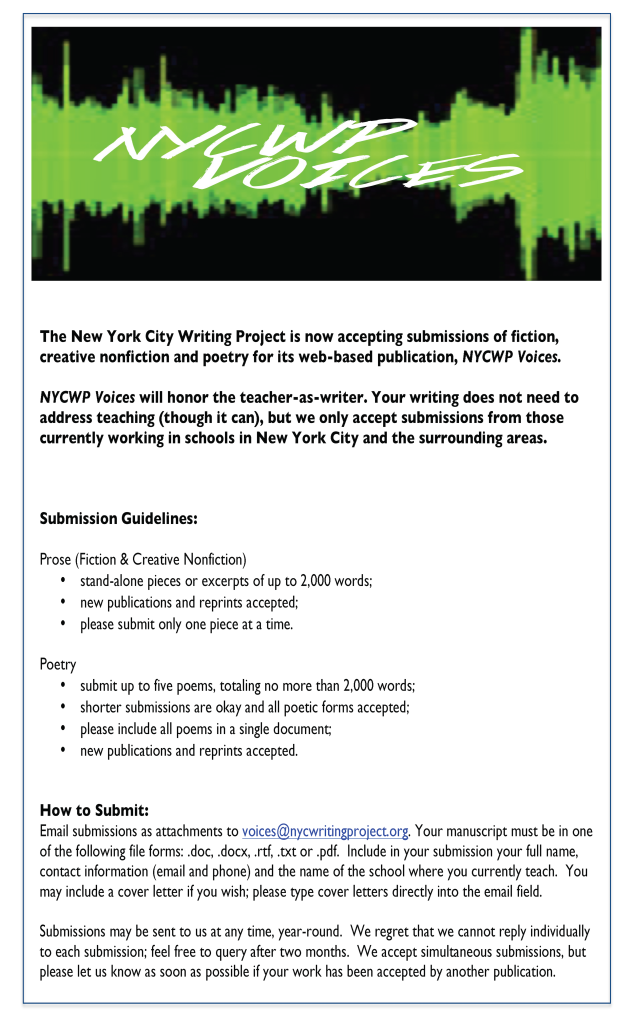
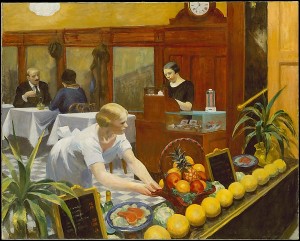
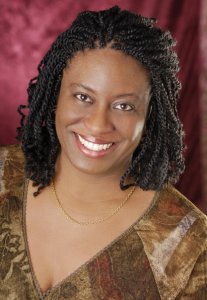 CARLA CHERRY is a native New Yorker, veteran English teacher, and poet. She self published a book of poetry,
CARLA CHERRY is a native New Yorker, veteran English teacher, and poet. She self published a book of poetry, 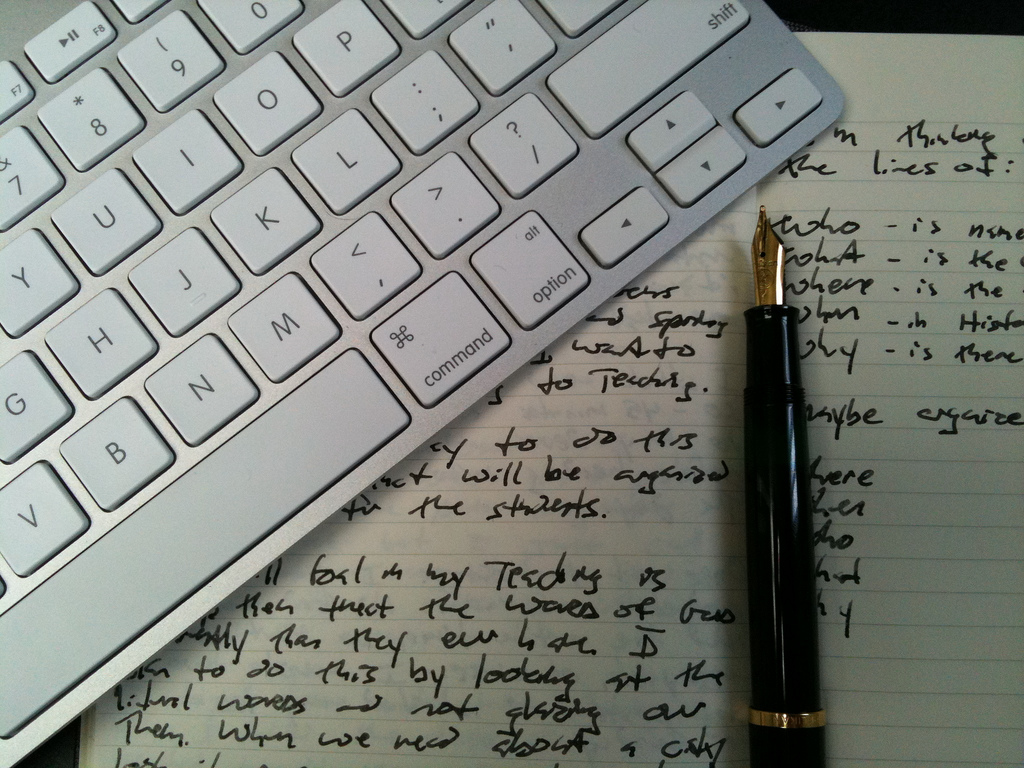
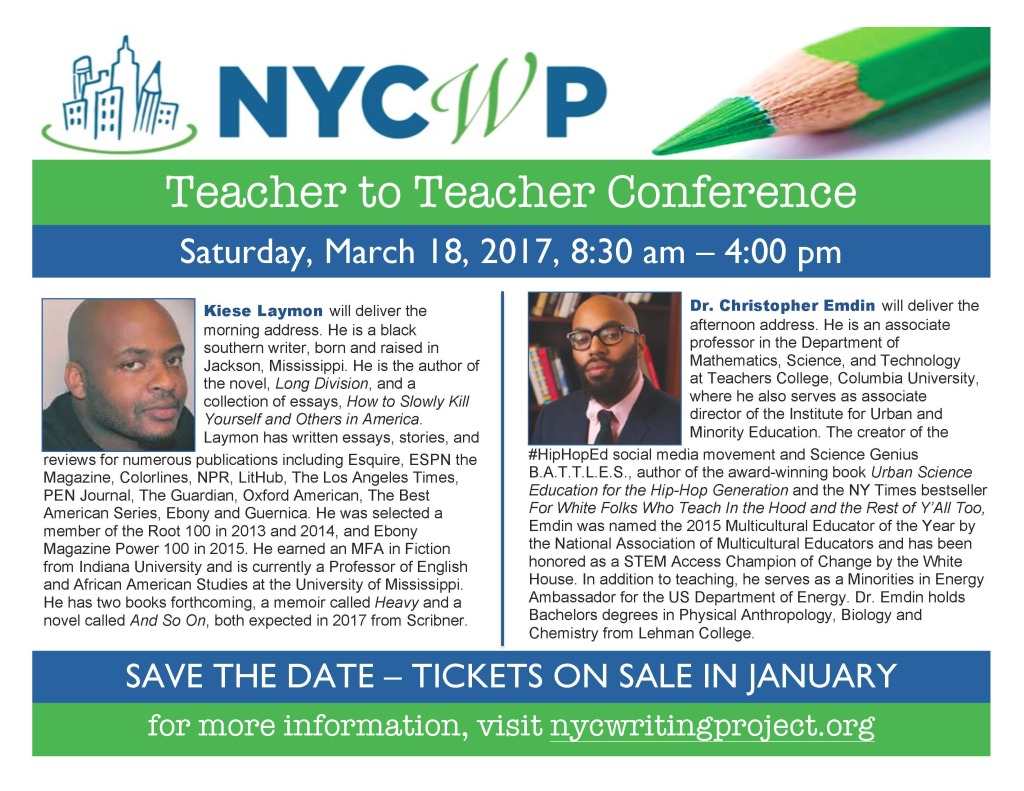
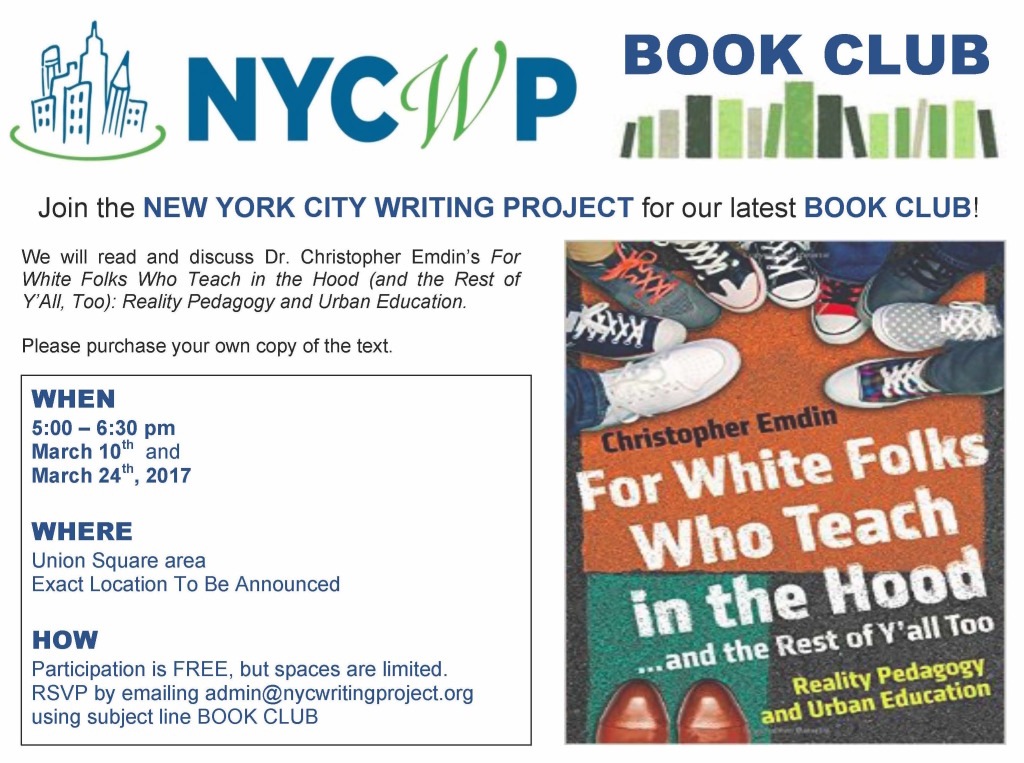
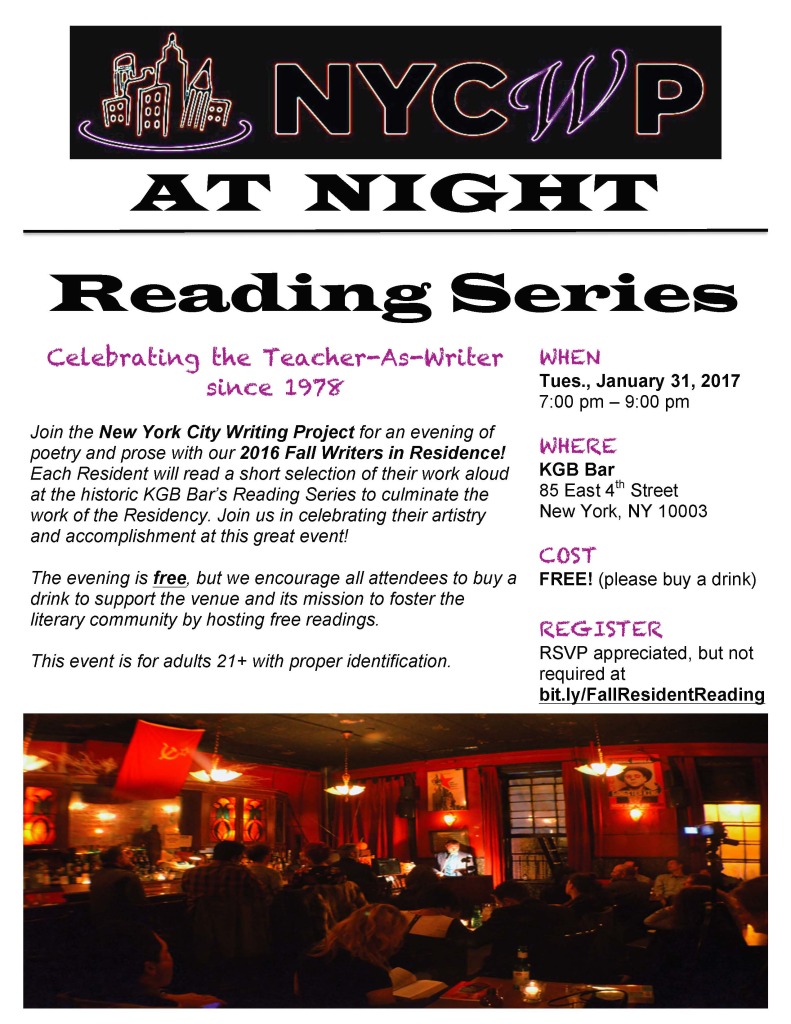
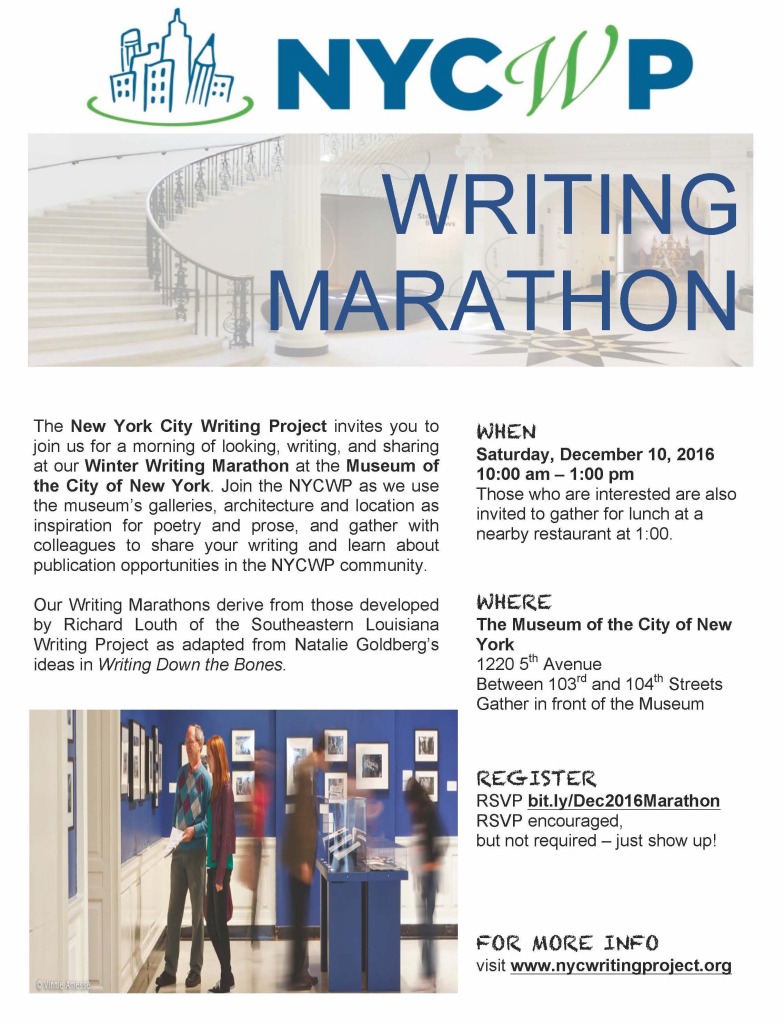
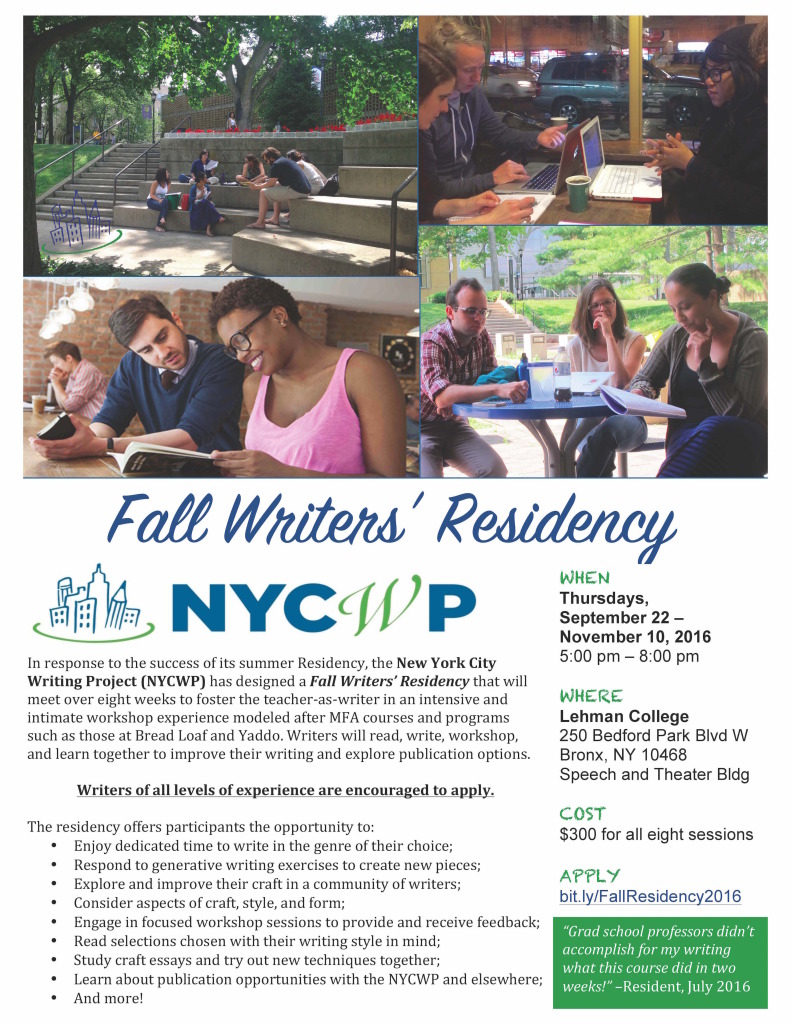
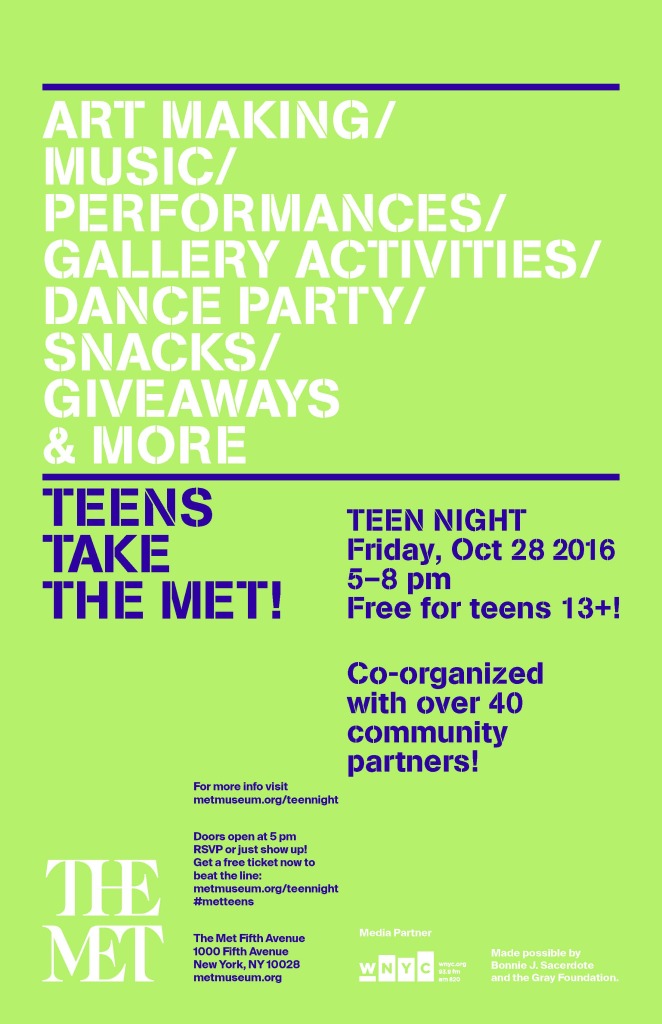
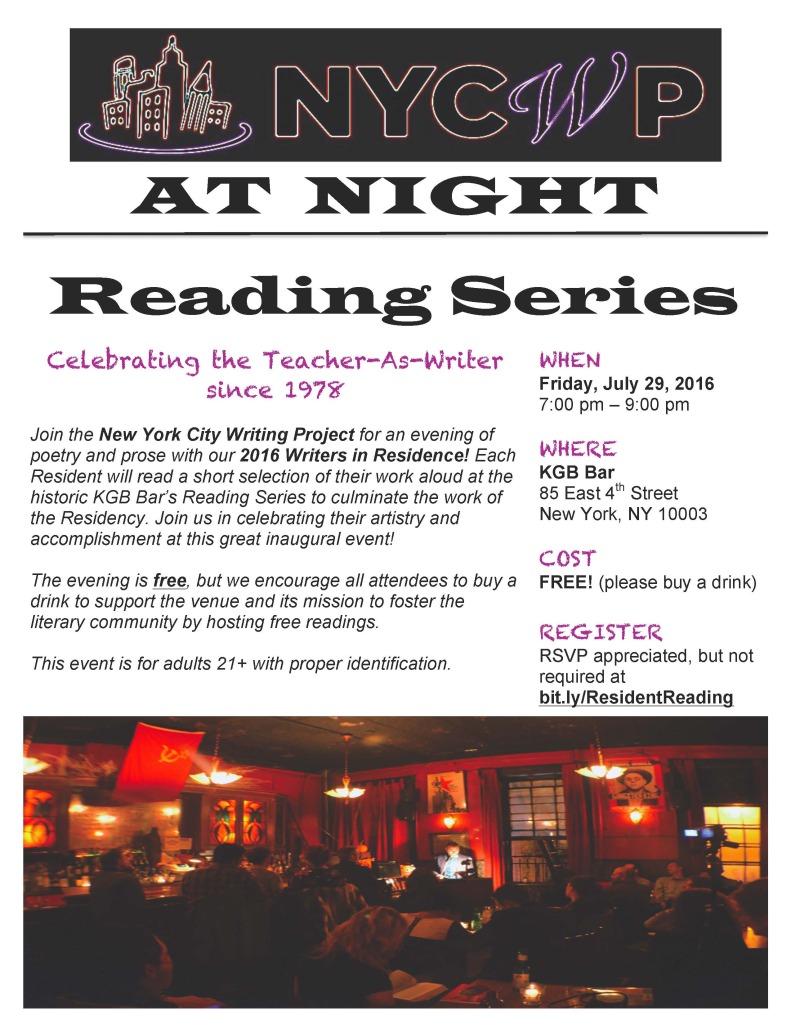
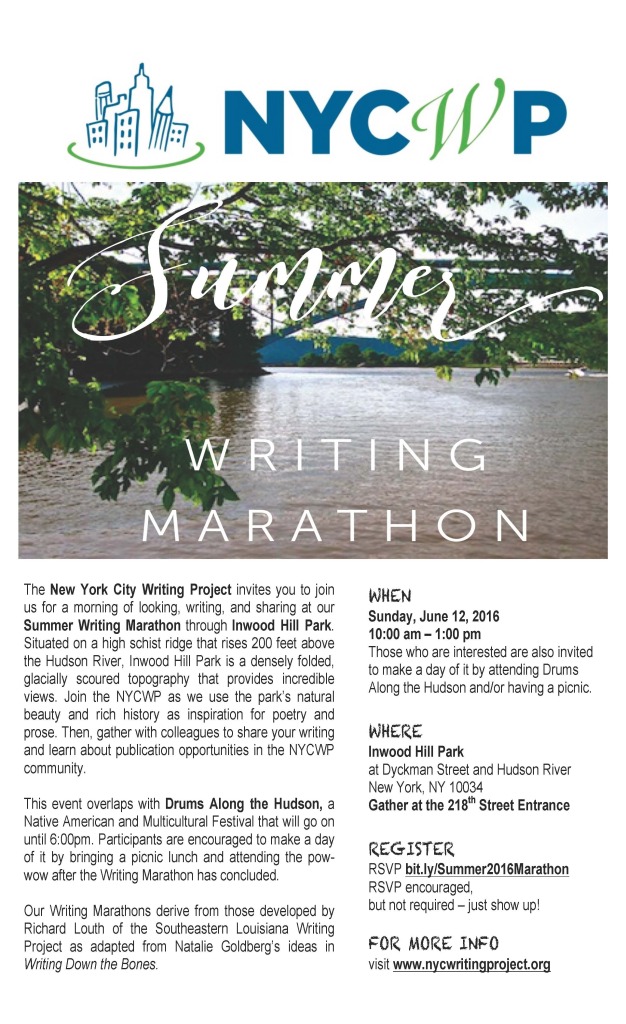
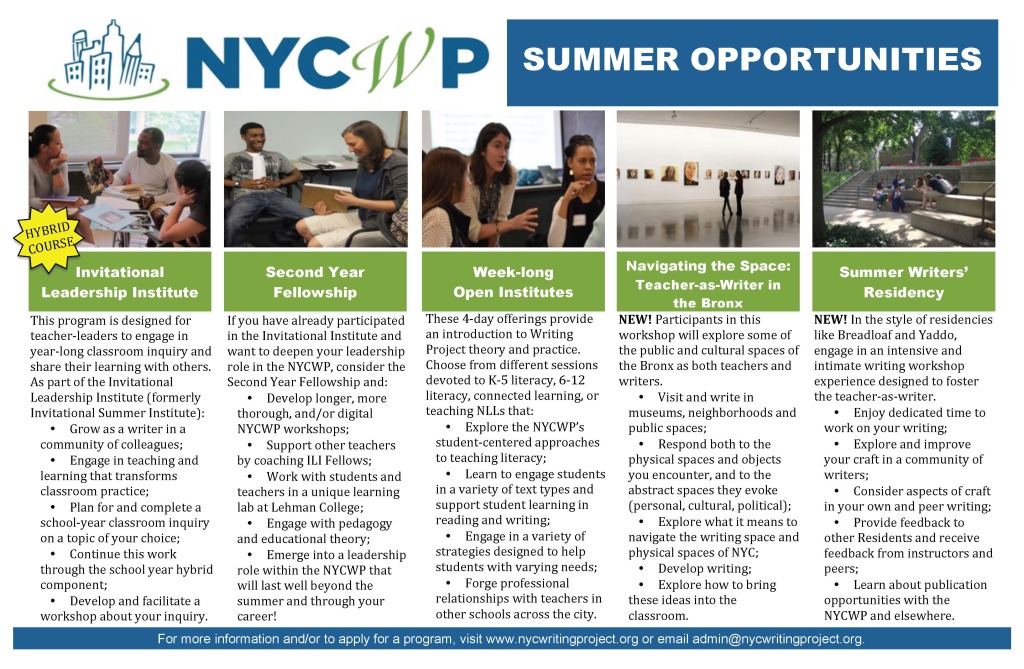


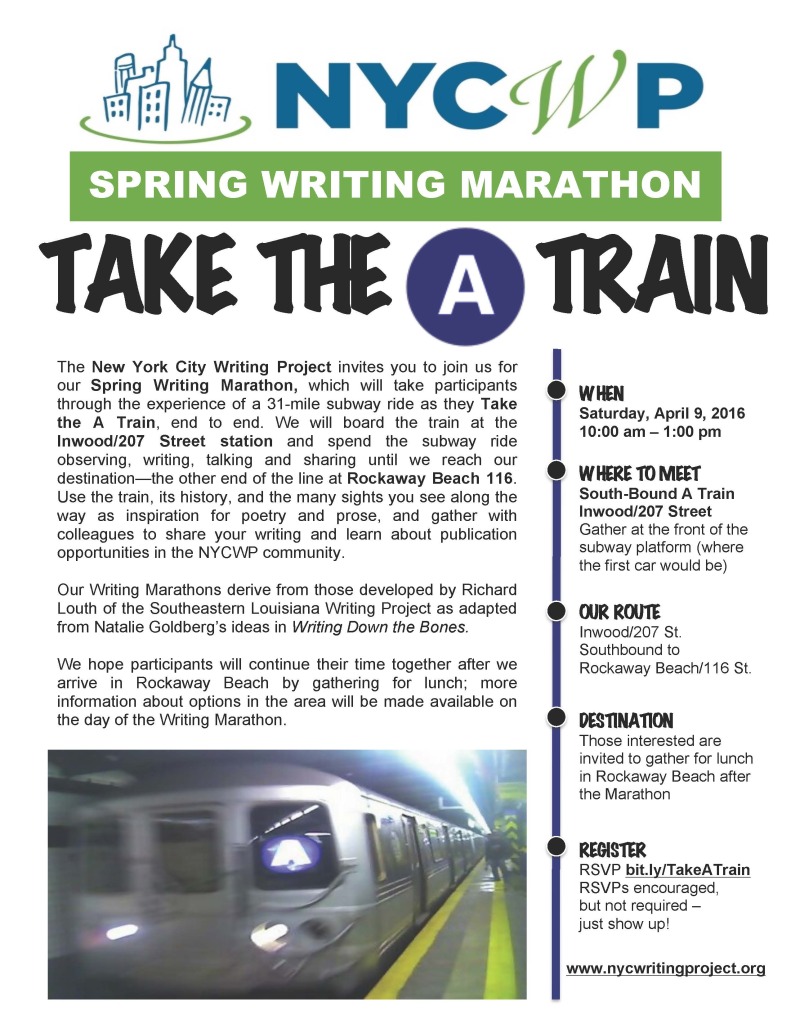
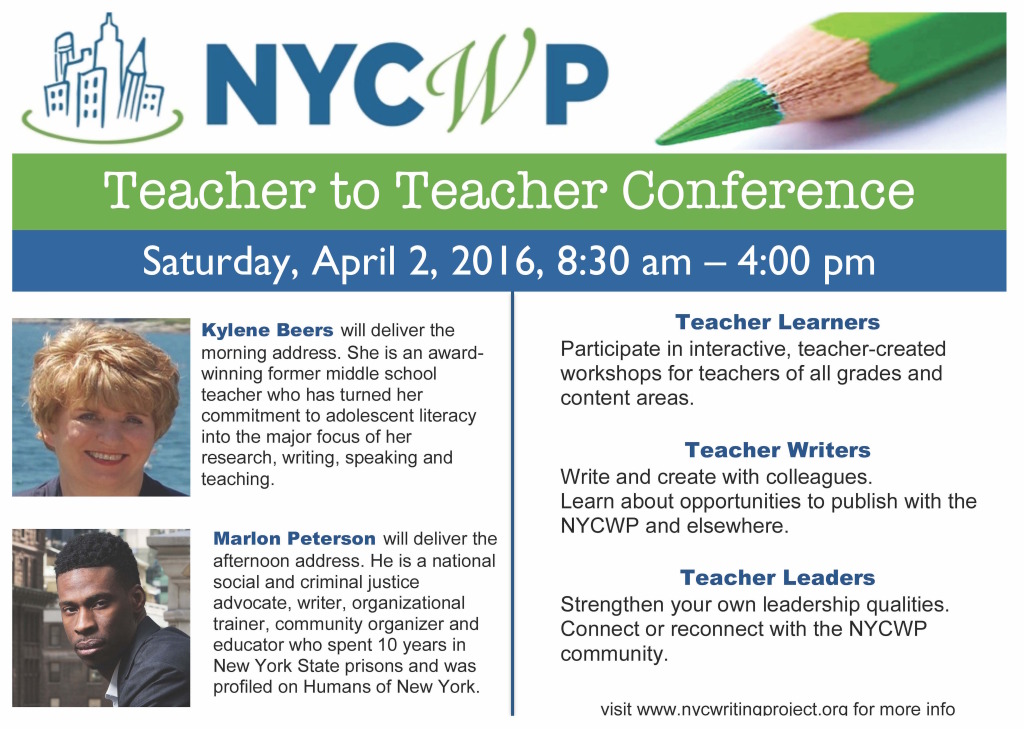
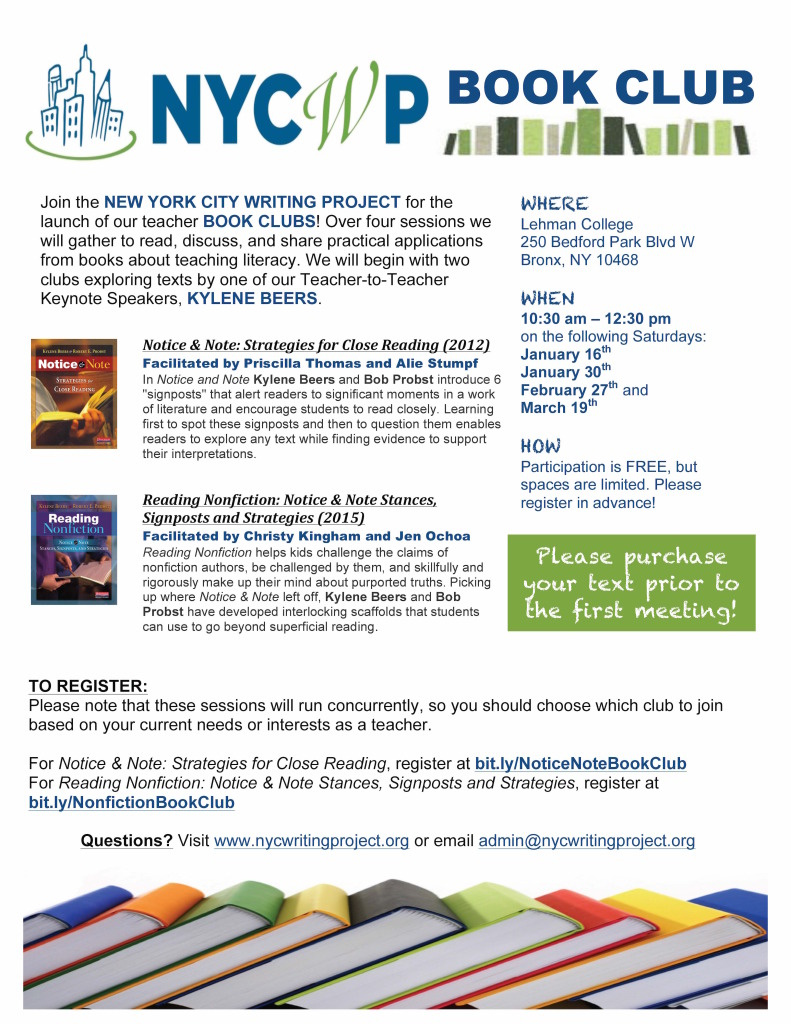
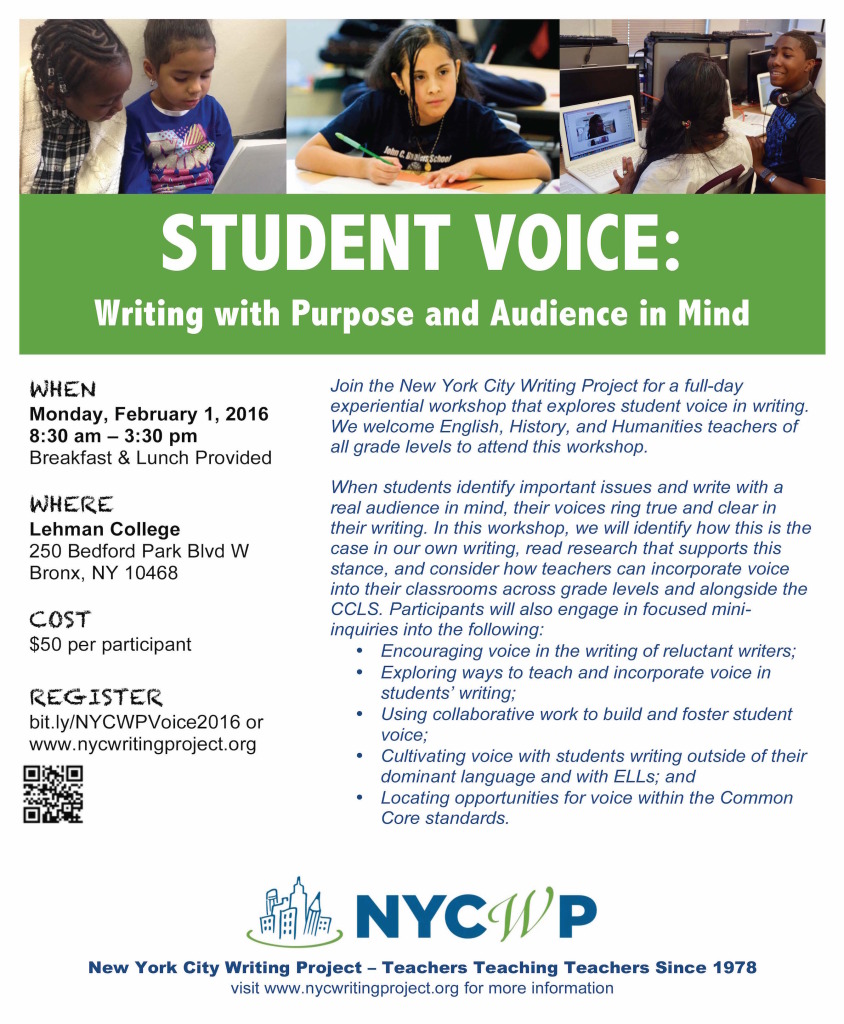
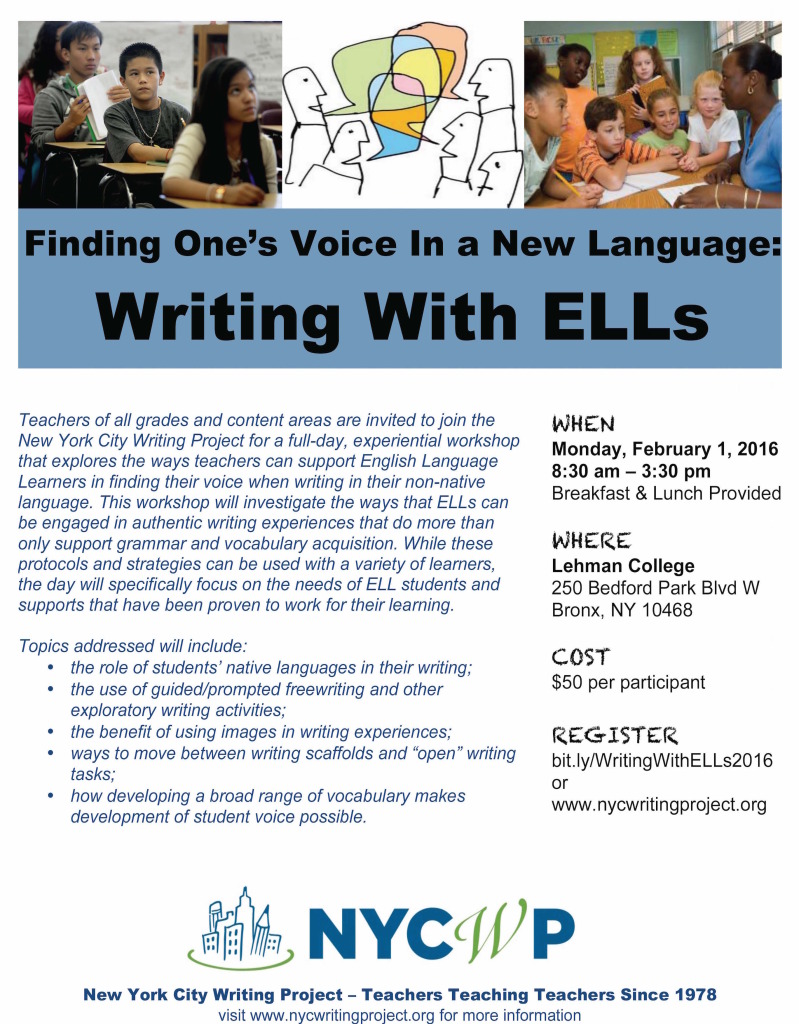
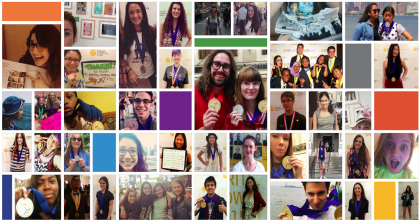
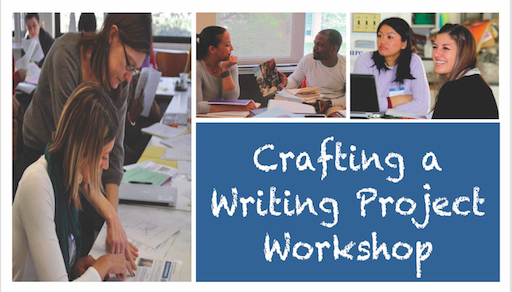
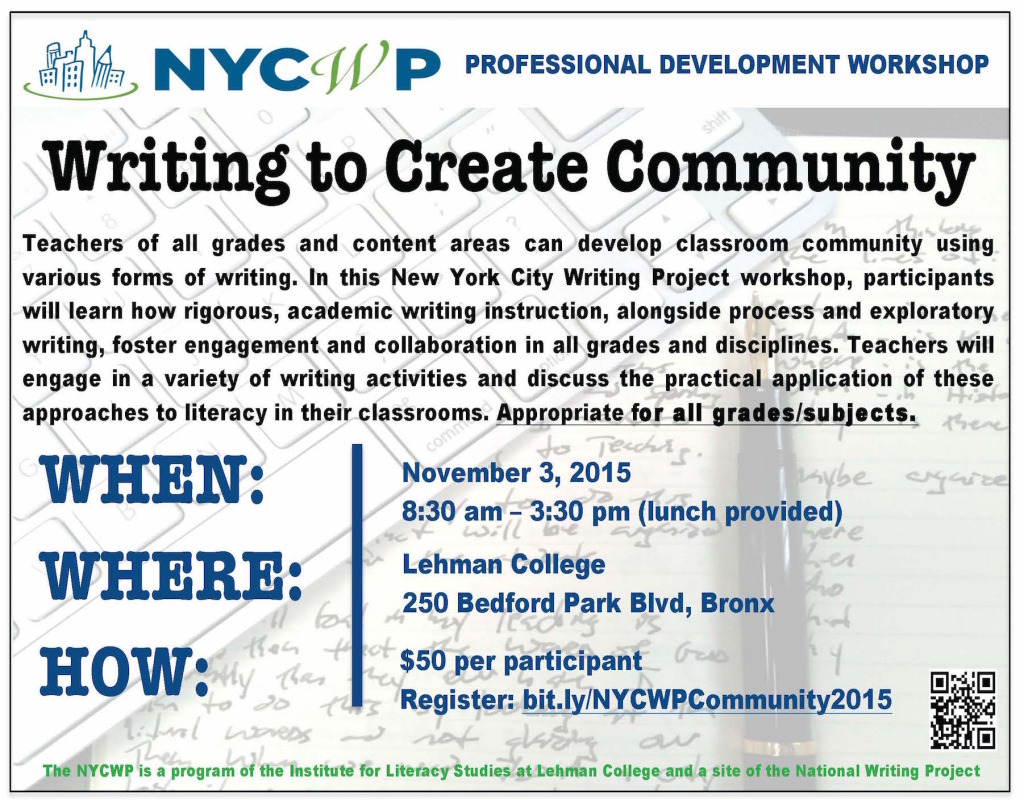
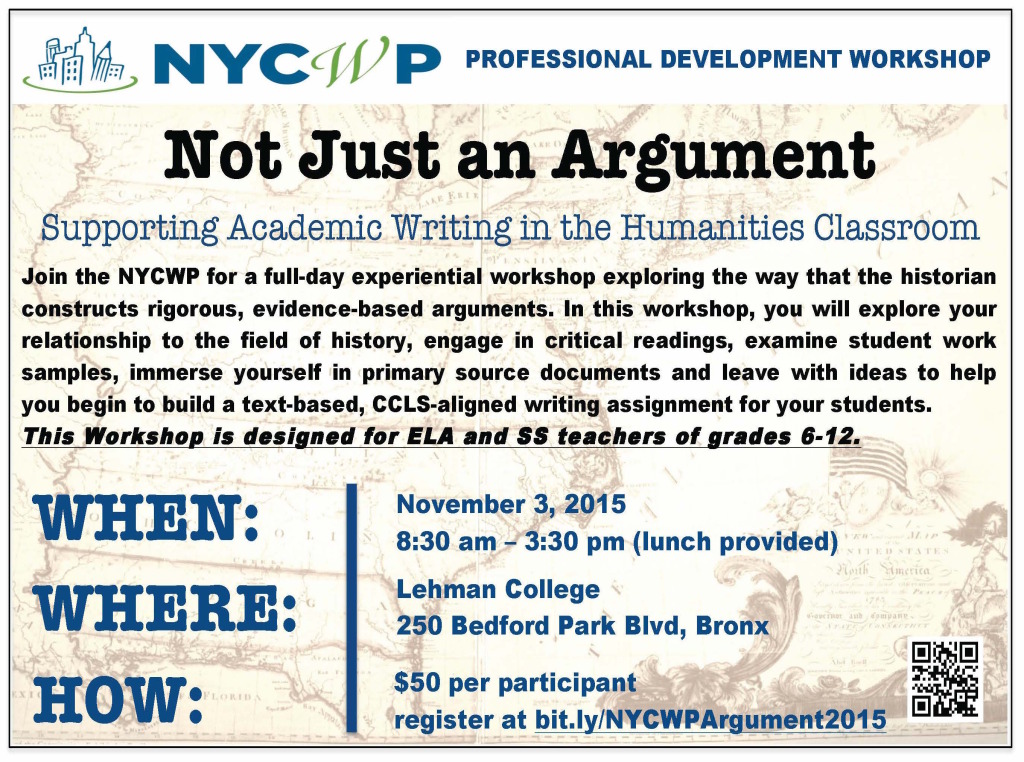
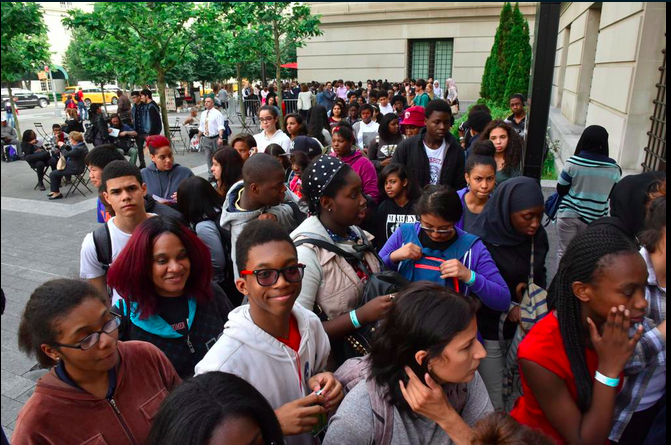

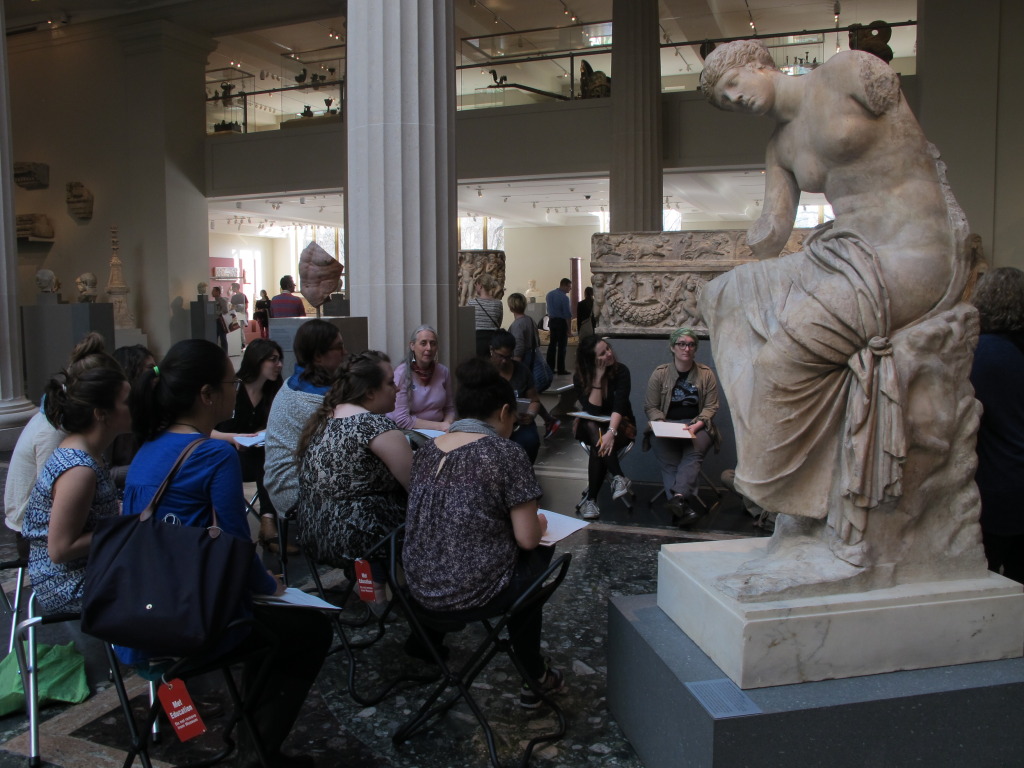
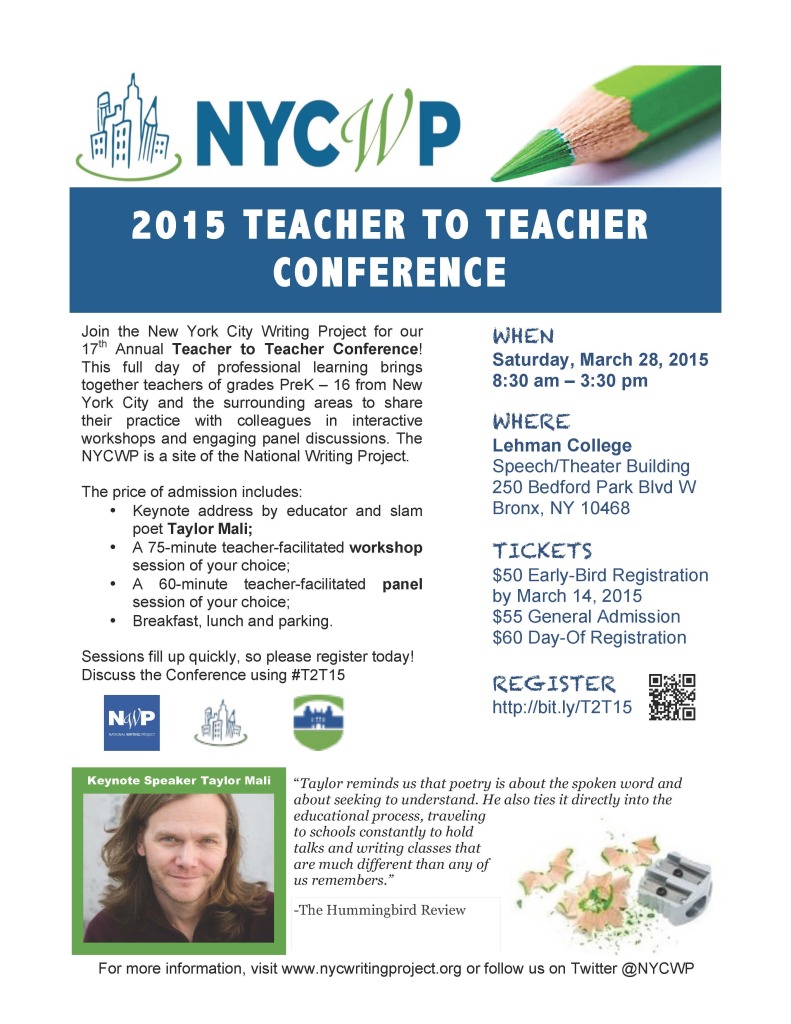
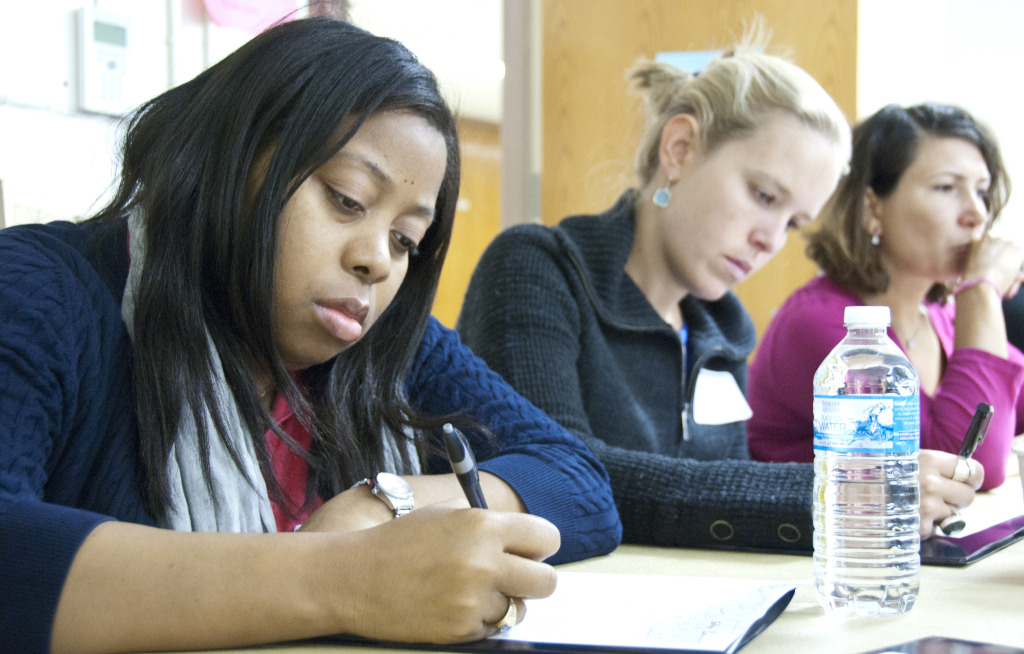
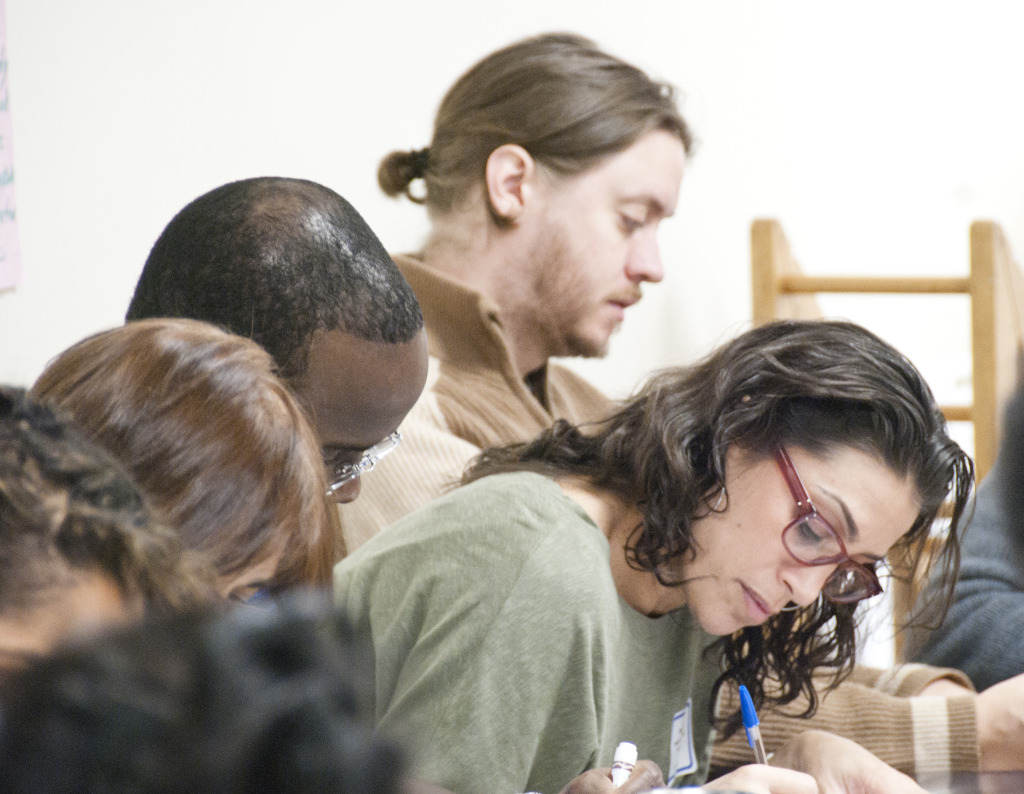
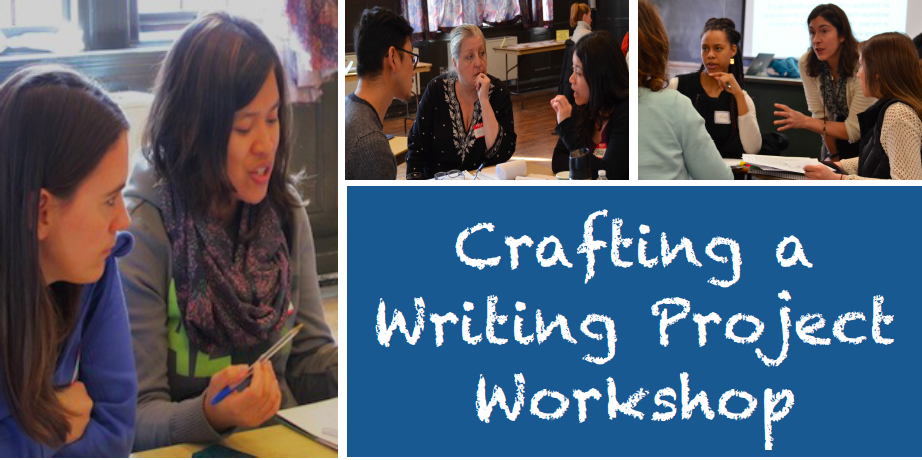
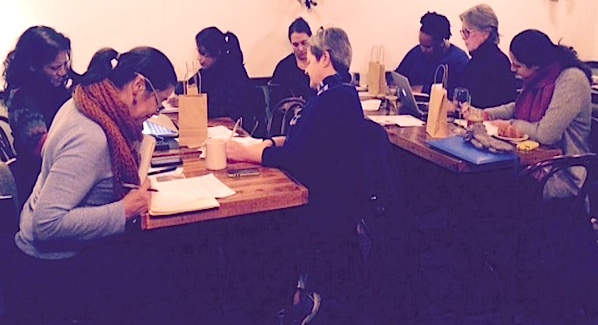

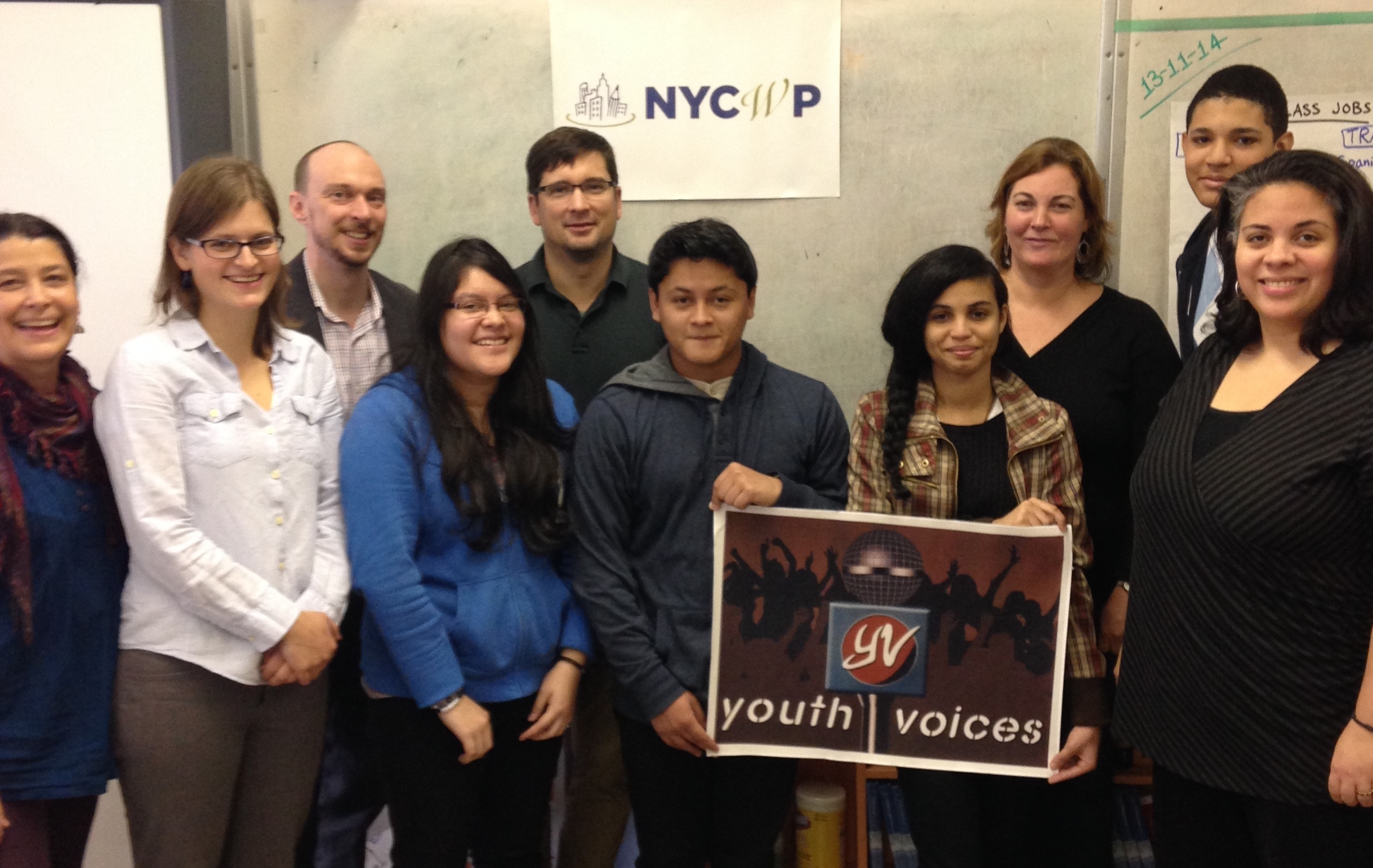
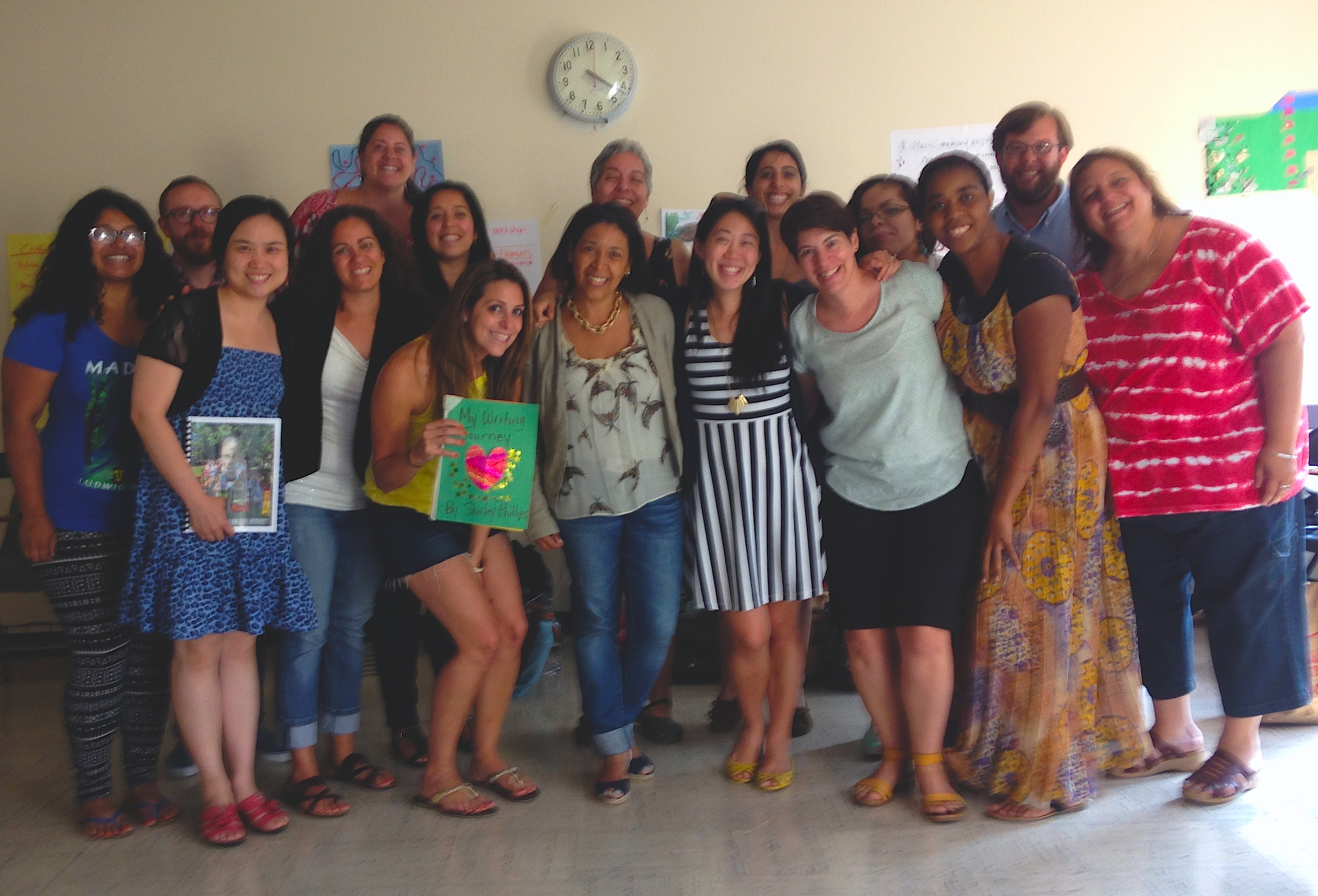


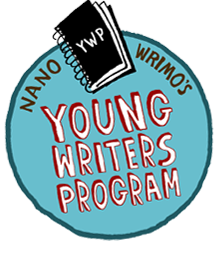
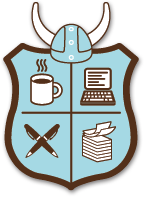
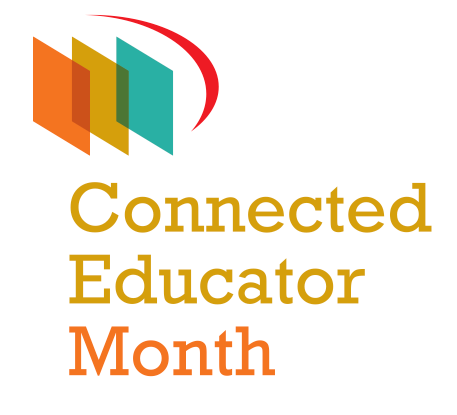
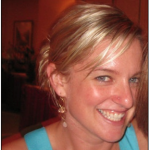 This Connected Learning Month guest blog post comes from Christy Kingham, an NYCWP Teacher Leader who has taught middle and high school students for the past 10 years. This past summer, Christy co-facilitated the Youth Voices Inquiry Project alongside NYCWP Technology Liaison Paul Allison. Christy and Paul will also spearhead the fall phase of the Youth Voices programming, which is
This Connected Learning Month guest blog post comes from Christy Kingham, an NYCWP Teacher Leader who has taught middle and high school students for the past 10 years. This past summer, Christy co-facilitated the Youth Voices Inquiry Project alongside NYCWP Technology Liaison Paul Allison. Christy and Paul will also spearhead the fall phase of the Youth Voices programming, which is